|
I am. We all are. Chronic diseases may be noticed acutely on a single day, but they were gathering steam for a while.
Think about it like when you’re born, if totally healthy, you are on the left side of a continuum, a state, and we will define that side as totally insulin sensitive and glucose tolerant. On the right hand side is another theoretical boundary, which we will call totally insulin resistant and glucose intolerant. As we go through life, different patterns move us right or left. Most move us to the right. You don’t magically and spontaneously become diabetic. That’s an arbitrary measuring point, made up by a variety of smart people, which nears the right hand side. Various lifestyles, exercises and activities, and nutritional practices work you leftward. This has been rigorously studied. Sitting makes you move rightward. Call it prediabetic if you like. Just breaking up sitting time makes people less diabetic: https://care.diabetesjournals.org/content/35/5/976 And strict parameters reverse type II diabetes altogether: https://www.diabetes.co.uk/…/very-low-calorie-diet-can-reve… Part of the confusion lies in calling a natural human phenomenon a disease, rather than thinking about biology as existing in various undulating cascades and spectra. The receptors in the body which respond to sugar can be deafened in all of us. As that happens, glucose, insulin and A1C numbers begin to rise. That’s natural. And they can be made to listen again. Glucose, insulin and A1C numbers can begin to drop. That too is natural. Though the majority of signals may seem to be pointing rightward, we can invoke many which push us leftward. People pat themselves on the back because they didn’t cross above the doctor’s line on a fasting glucose number meant to diagnose diabetes. But if that number is above 84, you’re trending right. A leftward trending individual will pull 75-85 on glucose AFTER eating. Additionally, on A1C confirmations, incredibly unhealthy people have a fast cell die-off ratio. So you can have someone prediabetic or diabetic who has a “normative” A1C. Think about it, because we’re all on the diabetes spectrum.
0 Comments
“The treasure we seek is hidden in the work we’re avoiding.” - Jim Kwik
When we seek change, or success, or to obtain something, we create very sophisticated lists of all the things “I’m doing right.” In exasperation, we throw our hands up, damning the fates, the stars, the gods, or our genes. And then one of our listeners says, “yeah, but have you tried X?” We shoot back, “no, that can’t be it.” Or we raise defenses, “I don’t believe X is right.” Or “my chosen expert doesn’t support X.” You get it. The solution probably always was and always will be X. You haven’t solved the problem because you’re fixated on these unrelated but good things you’re doing. And you avoid X. You vilify X. X is the answer. The solution is probably the thing you refuse to do. Everyone knows someone who is great at saving pennies but terrible at the overall wealth generation picture. Likewise, many people do a fantastic job at obsessing over .5 pound gains or losses only to be the absolute worst at losing 10 or 20lbs, let alone the 40-80lbs they need to lose. Oftentimes, obsessing about the tiny fluctuations puts you in peril as far as making macro-level moves.
An average American adult might be around 200lbs or more. Sixty percent is water: https://www.usgs.gov/…/scie…/water-you-water-and-human-body… That’s 120lbs of non-tissue. How inflamed and water-retaining (or conversely how anti-inflamed and water depleting) you are will change hydration levels by 5-20 percent. That’s 6-24lbs which have nothing to do with tissue loss. When doing metabolic troubleshooting, inevitably people must do increases in food intake or “refeeds.” Tim Ferriss and others have called this “cheat days” or “cheat meals,” which misses the point. You should never cheat on yourself. But you should reset leptin and a variety of other hormones which are preventing you from getting leaner. So refeed in an intelligent manner, looking to flip several switches before again returning to a depletion effort. If you always deplete, you’re like a person who never takes big risks in investments. Sure. You saved yourself from putting money into that startup, that business, that launch. You “saved” some pennies. But you also saved yourself from big reward. I’ve tested this. The heaviest I ever got was the most active time of my life. I was in my 20s, on my feet 10-16 hours per day, logging far in excess of 30,000 steps, and doing cardio AND at least 10 hours of lifting per week. I gained 60lbs in less than 20 weeks. I have NEVER met or even heard OF a person trying to lose weight who has an activity level in excess of my highest activity level. So I know for an inconvertible fact that you cannot do it. I ran the experiment. I performed the science. I have the data. And I’ve been gathering thousands of case studies on this for the past 15 years, let alone the 30+ years that I’ve been thinking, studying, obsessing about health and fitness.
Clinical studies confirm it. Researchers have presented the numbers. But it’s bigger than that. If you eat to grow, your activity is incapable of overcoming a growth signal. Activity merely influences what you will grow, or, if you’re eating to reduce size, amplify THAT signal. Growth begets growth. When the cascades of growth factors flourish in the body, you will support that growth with... you got it: more growth. It’s not just that eating a lot pumps insulin out like a banshee. It’s that glucose volatility increases hunger and cravings. You then continue to feed the growth cascade. The body tries to grow. When it approaches a point where building material is insufficient to continue growing you, hunger and cravings will drive you to bring in more constituent material (ie - food). Then you grow. And so on. I can grow bigger no matter how high my activity. I’ve proven this multiple times. It’s a biological law, not an opinion. Eat vegan. Eat paleo. Eat the Mediterranean Diet. I’ve been able to gain 20+lbs on any of them, no matter how high my activity. Why? Because growth begets growth. Haven’t babies and children been able to grow hundreds of pounds of body mass eating vegan, or paleo, or Mediterranean diet? Haven’t children been able to grow into adults while eating whole food for far more than 30 days? Show me one adult whose activity is higher than growing children. IF CHILDREN CAN GROW BIGGER, YOU WILL. The name of the diet and the level of activity matters not. What matters is eating like a grown adult, not a child. Eat like an athlete, not like a child. Eat like someone who has agency and control of her destiny, not like a child. Whatever it is you do, whatever diet program toward which you trend, just don’t eat it like a child. That’s it. Because, unless you’re an elite level athlete, your activity is never going to supersede my highest activity where I gained 60lbs. Yes. Lift. Yes. Be active. But don’t for one nanosecond believe those things can undo an overarching theme of life-self-sabotage. You absolutely cannot outwork your nutrition... ever. From everything.
There is an American tendency to think you can always outwork the problem; and I agree it’s mostly true. The challenge, however, is there’s always another problem. So when you run yourself below zero in order to address the current situation you can’t have the same resourcefulness for the forthcoming ones. Recently, I aimed to check no social media or email for at least two weeks. I did manage to make it about 10 days before I had to start answering emails and deleting them. Those screen shots are EACH from ONE SINGLE DAY of emails. I had over 1,000 items to clean the days prior. I’m not complaining. Coaching inquiries and busyness are good problems to have. But I was beginning to notice my ability to operate at the level I prefer was getting ever-diminished. So we went to Greece. This has been studied: https://www.google.com/…/the-surprising-benefit-of-wor…/amp/ Professorial work sabbaticals pay dividends. That is, the professors’ life works are greater when they have down time. We’ve been trying to figure this out in the work sphere for quite a while with debates about work week hours and limitations. And the fact of the matter is that prior to the industrial revolution, people worked far less than even the 40 hour work week we hold up as some sort of standard: https://allthatsinteresting.com/medieval-peasants-vacation-…. Working 60-110 hours in a week, skipping vacations, skipping weekends, skipping holidays are all more modern contrivances. We made them up. They were not ever really a part of human history until the 19th century. And statisticians and economists have many times over shown that when you double the hours of a workforce you do not double the output: https://hbr.org/…/the-research-is-clear-long-hours-backfire… In fact, some have gone so far as to suggest that the American institution of slavery (the worst overworking of all time) was a ponderous impediment to economic growth: https://www.gilderlehrman.org/…/historical-context-was-slav…. That is, as much as the American economy was built by overworking enslaved people to death, that growth pales in comparison to economic growth elsewhere and certainly since the abolition of slavery. Worldwide wealth developed since the eradication of slavery in the western world has many more zeroes behind it. Thus, it wasn’t merely one of the greatest moral failings of all time, it was a societal and business pause-button at the macro level. Acknowledging the dignity and humanity of people, yourself included, is paramount to growth. Part of being human is experiencing all of life, not just a nose to a grindstone. When people can breathe, they can produce from a place with more beauty. I apply this to health and fitness. People push really hard. And they should. Sometimes. Other times, they’ve been past the point of diminishing returns for so long that a harder push doesn’t really make sense. In fact, in metabolic engineering, we have to eat MORE and work out LESS in order to get someone to a point where she can get leaner. This is confusing to the layperson who’s thinking of slavery or workaholism as a net advantage. It’s not an advantage. It’s certainly not a net win. It’s a detriment. You have to take a break. You have to honor the body, the temple. You have to acknowledged the dignity and humanity of that person. THEN, when restored, we can spend from the abundance. You cannot spend from a place of overspent. Why are some modern companies more powerful than most sovereign states? Because you can sheer a sheep many times, but only skin him once. Wars of conquest still occur, sure. But they’re so passé. Stealing all the land and resources of a territory works exactly one time. Then you have to manage that land and mine the resources. Oops. Modern companies figured out how to take a little bit of money from MANY people MANY times. Of the top 100 economies in the world, 69 of them are companies, not countries: https://www.weforum.org/…/corporations-not-countries-domin…/ Your health and fitness are like that. Go to war if you must. But lots of tiny transactions with breaks in between have a better model of prosperity. 2004/05 clients used to ask me and my staff how to stay on the elliptical/treadmill/stepmill/bike for cardio when you want to get off. I’d say, “when you’re ready to quit, pinch two spots on your body you wanted to get rid of all the fat, and ask yourself, ‘is there still some left?’.” It’s a little silly but a profoundly effective tool once you’re regularly at the gym, working steps, etc. You may be thinking, however, “how do I keep going, as in showing up?” Pinch-pinch may help when you’re asking yourself, “should I forgo food X, go for a run, go and lift, etc.?” But it’s probably not enough on its own. Add three other tricks:
1.) double dip - the average American spends an almost unbelievable amount of hours on media per day. Some estimates place it around 12 hours, between tv, radio, and online media. You may be at the low end, like 2-3 hours. That can be done while on a stationary bike, treadmill, etc. It’s interesting that as coaching clients integrate this, they end up spending less time altogether on screens and end up emotionally more stable. In some cases, that’s the only time they’re camped out on an iPad or phone. 2.) get perspective - watch this before, during or after a workout effort: https://youtu.be/zSj2In5QBcI When you take the time to genuinely compare someone with real restrictions and challenges to your excuses you hold up, it is rather sobering. Some may call it motivation. Some may call it inspiration. If a guy who died on the operating table 3 times can go for world record lifts, you can show up to sweat a little. Moreover, whatever else it is you may be aiming to do in life, CT Fletcher never fails to put some perspective on effort and drive. 3.) remember that “doing” precedes “energy” - Simply sitting for 20 minutes raises insulin resistance in all people. This means cells in your body are literally less capable of obtaining mitochondrial fuel when sedentary for short periods. Trying to evaluate whether you have the “energy” for a workout while inactive makes about as much sense as awaiting a paycheck to begin going to work. The equation is precisely inverted. This one is tough. So place Post-It notes around the house if need be. Your intuition will direly mislead you on this one. Start by doing. THEN the energy comes. People with the worst sleep and energy issues are the ones who “rest” in a chair all day. Your body is 100% dead wrong on this one. No more inaction required. Go. Do. Move. THEN receive the stimulus to exercise. Show up for work. Do the work. THEN receive the paycheck. Sitting and waiting for enough energy cannot physiologically work. But people get so good and skilled at avoiding effort that they even continue sitting still when a flood of nervous or anxious energy hits. Go burn it off. Don’t hide in a corner. In fact, a friend of mine and I were talking this week about how we’ve both utilized 24 hour gyms to burn off anxious energy at 1am. Some of the best-feeling days of our lives were when I had so much on my plate I “couldn’t sleep.” We’d go do sprints in the middle of the night and then sleep like a baby afterward. People will report having incredible exploding energy when they should be sleeping. Of course you do. You refused to move the human body during the waking hours. It needs to move. So go do so. Re-right your circadian rhythm. Don’t lie there with head pounding and suffering dread. Pinch-pinch may help. But double-dip, perspective, and the reminder that “do” precedes “energy” are how you’ll keep going. Often, people will cite age as a reason for their difficulty in getting in shape. Usually, my first response is to look at them like they have lobsters crawling out of their ears. Then it hits me, “Ohhhh, I get it: you were coasting and never learned anything.” I never coasted. And I’ve been learning more every year about how to improve. As such, it’s never been easier to get in shape than now; and I look forward to how easy it will be in 10 years, 20 years, 30 years.
But I get it: if you never attempted to develop more skill in self-discipline or efficiency of self-care, yeah, it’s probably quite a bit more “difficult” than long ago before you accumulated so much damage from your active self-sabotage. That is, previously you did zero effort. Now, you have to do above-zero effort. That may feel like an infinite percent increase. Some people never coasted. Some people were thinking about and working self-care as children. So the effort to improve as an adult doesn’t seem like anything to them. They’ve logged lots of practice. Now they’re more practiced. It’s easier, not harder. My best success stories come from non-athletes, because they never had it easy as youths. They never coasted. They were never naturally and blithely fit. The former youth athletes, however, have a really hard time. When they were on a team with structure and social pressure and reward and accolade, they were so easily in-shape. Now, as adults, having to impose self-discipline, they flounder, they struggle. They have a much higher quit rate. At 16-19 years of age, I slaved at running 60 miles per week and starving to achieve a ho-hum outcome. Over 20 years later, and I am more athletic, fitter, and dealing with fewer body aches than then. I don’t workout nearly as many hours (I measure my workouts in minutes actually). And I don’t diet hard. I accomplish 1000 times more than I did in my 20s. And of course this is the outcome. I’ve accumulated two more decades of skill development. It has nothing to do with “age.” It has to do with what effect you’ve been accumulating over time. A person who does upgrades and daily maintenance on a classic car may well have an improved vehicle 50 years and 800,000 miles later. A person who drives his car hard and never does any maintenance will have a useless bucket of rust in 5-10 years. Age was immaterial. Time and miles even are inconsequential, depending on how you journeyed through them. I have clients who start paying attention to fitness at age 50, 60, 70, 80; and they improve. The 100m world record for 70-74 year olds is around 12 seconds: https://www.positive.news/…/in-pictures-elderly-athletes-s…/ That’s faster than most youth athletes. Go to a track with someone you think is incredibly fit, and see how little (if any) faster their 100m time is than that 70-year-old-class time. You’re going to have your eyes opened. Human physiology has only the limit of how much damage has been accrued. It’s variant, the same way different vehicles progress or deteriorate. In recent years, I’ve broken 20.0 mph at peak sprint on a Woodway curve and almost hit 2000 watts at peak on an assault bike. When I played soccer in high school I couldn’t even approximate the former, though I weighed 80lbs less. In fact, even some of my fastest peers in high school wouldn’t have broken 20.0 on a Woodway on their best day. As for the latter, I only know OF a handful of people on earth who’ve broken 1800 watts on an assault bike. The passage of time made these things possible. Age doesn’t just make it easier. It turns the impossible into possible. Thus, as we age, it’s actually incredibly easier to get in shape when we apply discipline and practice certain skills. The effect from those skills can only come about with the passage of time, which young people haven’t had the chance to get yet. Aggregated outcomes rely on time to aggregate. And that’s why it’s so much easier to get in shape as we age. What we call “fitness” has many subdivisions. Even what we call “strength” is referencing different skills and abilities. And you have to be fair to yourself while assessing this. Pick one. There’s no way to pick them all.
In one of my coaching calls this week I was reminded that this point is often missed, both by other coaches and certainly by the public. It didn’t help that there was an active subculture afoot within the fitness world whose stated mission was “work out as hard as possible as long as possible.” What? No. Either work out as hard as possible, or as long as possible. These are mutually exclusive propositions: https://www.ncbi.nlm.nih.gov/pmc/articles/PMC3005844/… That is, you may either develop the skill of maximal force production or maximal duration of effort in a submaxinal force production on any given day. In fact, real coaches will have athletes work on one (and only ONE) of these facets of the energy continuum for up to 12 full weeks at a time. It is true that when your maximal force production goes up your POTENTIAL to increase sustained effort may go up. But that potential can only be reached via training the endurance effort. More simply, a guy who benches 600lbs for 1 has greater potential to bench 225 for 50 reps than a guy who benches 500lbs for 1. But, the 500lb bencher may actually be closer to hitting 225 for 50 if he spends more time on endurance periods (over 45 seconds) of effort. This is why people are confusing themselves when they see an athletic effort and ask why the athlete didn’t do more weight or reps or less rest time or more range of motion. All of those variables must be trained, oftentimes separately. Usain Bolt never qualified for the 400m and never thought about the 800. And he’s the greatest 100m and 200m sprinter of all time. They’re different energy systems. So be careful with the self-deprecation. If you achieved a success on an effort which occurs in 15 seconds or less, don’t also criticize yourself for not outdoing an exercise which is executed over the course of 70 seconds, especially if it’s the same day. Cal Dietz won’t even let his athletes train disparate duration efforts in the same day. And although potential is influenced by training one piece of “strength,” this does not consequently mean you are yet better at another piece of what we might call “strength.” Pick your poison. People: why would I eat a certain way and exercise a certain way if I don’t get immediate gratification?
Me: because it’s the right thing to do. Same people: I can’t believe so-and-so would do/say/believe such a thing. Me: why? Same people: well, it just isn’t the right thing to do. Me: but isn’t it serving his/her immediate gratification? Most of the time, it’s difficult to think in terms of long-term right-thing-to-do. Most of the time, people don’t do it. And your self-serving immediate gratification sins may indeed affect FEWER people this second than the self-serving immediate gratification sins of your most reviled enemies. In fact, your individual personal immediate gratification probably does affect FEWER people at a lower magnitude today, at least directly. However, given that 2/3 of federal spending is on older people and their medical costs, it’s not really fair to say that the way you live your life has no impact on other people’s lives. And the fact that our country’s resource needs, in part, rely on world domination and trade conquest and leftovers of imperialism, our consumerism and convenience-driven lives of anti-self-care are no small thing. Not many of us are getting off the grid, living off the land, self-sustaining, and shunning modern society. Maybe the Amish? The purchase of drive-through food alone has rippling impact across the globe: https://www.nationalgeographic.com/…/consumerism-earth-suf…/ We think we’re just lightly mistreating ourselves once or twice, here and there, so no big deal. Multiply that thinking times 1.7 billion people. It is crushing the other 5 billion. Even the worst bad guys in history only affected a few million people. American impact is in the billions. The collective misuse and abuse of your health is arguably more directly and negatively affecting more people than all the wrongdoing of all your hated enemies combined. I’m not saying that it is. I’m saying think about it. The American experiment got a lot of things right. But unbridled freedom comes at a substantial cost. The rites of passage and roles and responsibilities which we threw off because of their perceived incredible weight left for us a heavier one, infinite imposition: myriad choice. Unending decision-making is exhausting, not empowering. And it shows, not just in these stats, but many others. How can we reclaim a daily or weekly schedule in order to reduce the choice-fatigue?
When you train a puppy, it’s considered abuse to let her choose where to go on a walk, leaving the decision of direction to her. Her role should not at that age be “pack leader.” It’s stressful. And it will often leave her with a remaining life of anxiety and inability to calm during noises and storms. Likewise, children have to have parameters. No parameters is a form of abuse. People think they’re gifting a beautiful array to a growing mind when they go full-tilt laissez-faire with parenting; but, in fact, they’re destining that kid to a mentally ill adulthood. Moreover, with adults as well, we shrug off the heft of daily practices and weekly behaviors, so that we might feel more free. We think we want to have infinite options, defining and redefining every word and designation and tradition possible. Some of it is good, like challenging the status quo. But a lot of it just makes the mindset murky, obviously. We marvel at freedom and free time. We covet it, to the tune of we are damn-near the most mentally ill people on earth, far more than the developing world at least. On average, the more wealth (not just dollars, but all resources, especially time) someone obtains, the higher their risk. Freedom isn’t 100% upside. Fitness requires discipline, not wanton abandon. So it’s going to be rough-going, placing limits on yourself. It’s at odds with our societal mores and our expectations of infinite liberalism (in the literal sense, not a political meaning). More pointedly, when you begin the internal dialogue “I am the person who...”, how do you end that statement? That inside narrative, when largely undefined, means you live unrefined. Have you ever noticed how happy those little old ladies are who do the same thing on Monday every week? They don’t have infinite options. They don’t burn up valuable mental health on redefinition. There’s a power in routine. It’s calming. It engenders sense of agency and control. They can solidly finish that sentence which begins “I am the person who...”. The same goes for the people in the Blue Zones. These people finish that sentence without hesitation. They have very defined routines, yet feel no imposition, nor yearn for more freedom. Our superficial bolt-on freedoms pale in comparison to the internal freeness they experience by virtue of roles and routine. In health and fitness, parameters and limits and roles and routine are critical. Always trying to shrug off the healthy routines and behaviors leaves you vulnerable, in a perpetual decision-making fatigue, arm wrestling yourself between what’s productive for you and what isn’t. I’m not saying anyone else should tell you what those limits are. They shouldn’t. I shouldn’t. But when YOU decide upon them, recognize that YOU are stepping into counterculture. When you decide to eat like an adult, realize that your brain and everyone around you doesn’t understand fundamentally what is going on. And your brain and everyone around you WILL fight this. It appears unfree. It appears anti-American. “You mean, you CAN’T eat X,” people will say. No. We can do whatever. We just DON’T. Say, “I am the person who DOESN’T eat X.” Think of it as sacred. Think of it as true individualism. When your future self listens to your former self, you wield a power that is so rare and so unfamiliar that people think it’s a judgment on them. They take your effort to live with intelligent and productive limits as an indictment on the very concept of Americana freedom. They take prudent living as a middle-finger to the way most people live their lives. And to an extent, they’re right, except that governing yourself healthily really doesn’t count on external recognition or acknowledgement. It doesn’t count on the external at all. It doesn’t even think about the external. Stats are bleak. But you can choose to be a statistical outlier, if only you institute limits and routines for yourself. Start with one, daily if imaginable. And build one at a time. We don’t have it together. But we can get it together. |
Elev8 Wellness
|
LIVE. AWESOME.We offer the highest quality in personal fitness, nutrition, and mindset coaching, helping you achieve your fitness, health, wellness and performance goals no matter the obstacle. With virtual online training and private, in-studio training we make it easier to reach your wellness goals safely.
No more can't. No more not good enough. If you compete in a sport, let your mind no longer hold you back from being the greatest. If you don't, let your mind no longer hold you back from being the best version of you that you can be. Sign-up for a Tour Covid Screen Waiver Elev8 Waiver Become an Elev8 Instructor Space Rental |
6244 lyndale ave. s., minneapolis, mn 55423
|
© 2021 Elev8 Wellness LLC. All Rights Reserved. site map | contribute | SITE BY Sproute Creative

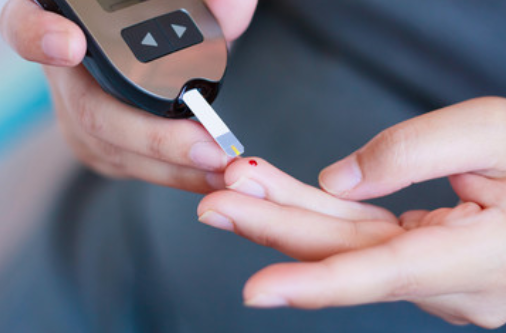
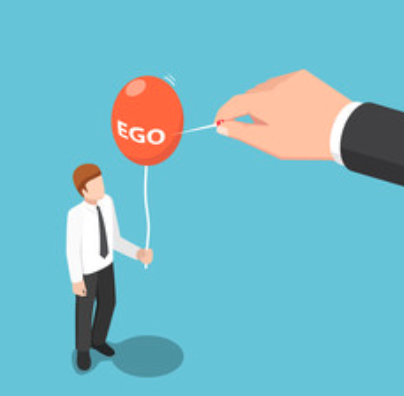




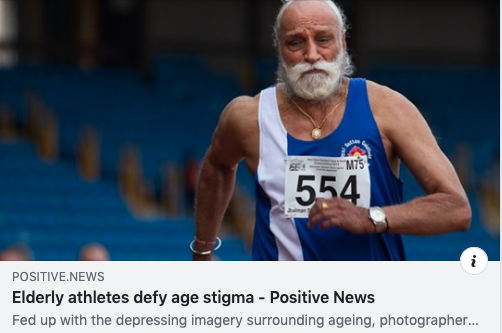

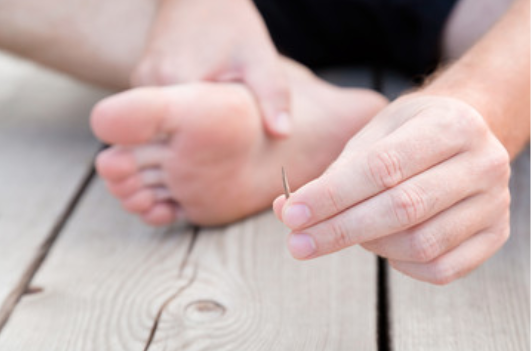
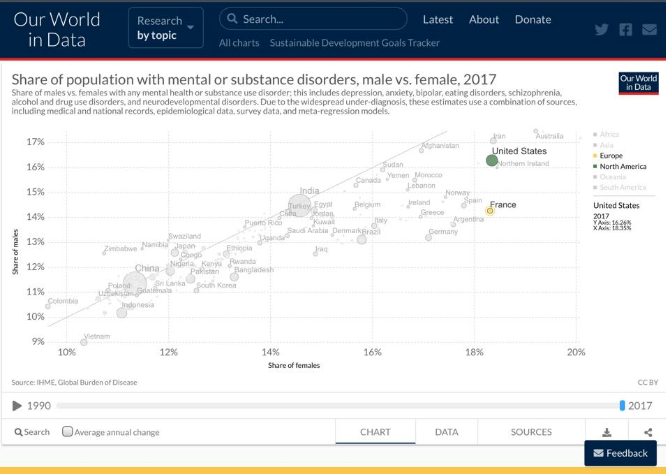
 RSS Feed
RSS Feed
